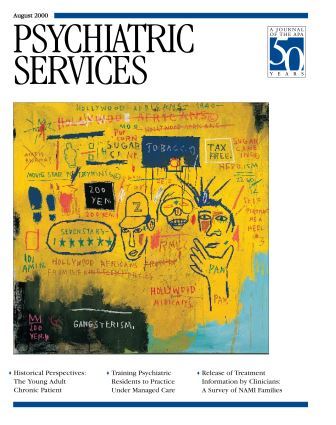Reading the first sentence of the abstract of the 1981 paper by Pepper and associates on young adult chronic patients (page 989) gave me goose bumps. Change the ages, and we are talking about the most important demographic imperative facing psychiatry in the new century. Try it this way: "A new generation of persistently dysfunctional older adults has emerged in the community, requiring new programs in community care."
We are confronted with a new cohort of late-life patients who have no previous history of severe and persistent mental illness. Mainly they have behavioral complications of dementia, but other illnesses, including depression, bipolar disorder, and schizophrenia, can also begin after 65. However, the imperative comes from the numbers. Millions of baby boomers are in the old-age express lane.
Pepper and associates talk about the "social breakdown syndrome" and the need for new residential and community-based programs for young adults. Twenty-five years of working with older adults has led me to the same issues in geriatrics. Friends die, family members eventually become exhausted, and whoever ends up with the responsibility for a mentally ill older adult starts looking for a solution.
Let's take an example. An 85-year-old man is brought from his apartment to the emergency department because he is confused and combative. He turns out to have mild congestive heart failure, a urinary tract infection, moderate dementia, and a history of alcoholism. If he is lucky enough to have a healthy wife, he has a shot at returning home; otherwise the most likely outcome is an institutional setting.
For older adults, it's not the public mental hospital for which we seek alternatives but the nursing home, where the overwhelming majority of residents have a diagnosable mental illness. The sad truth, our shared secret, is that the main function of nursing homes is caring not for physical illness, but for psychiatric and behavioral problems. Cournos and Le Melle, in their commentary (page 996), rightly advocate for a more humane approach. We desperately need to expand home-based care, adult day centers, partial hospitalization, and outreach teams, and we need training programs for the professionals who will run them. Nursing homes are poorly equipped to treat complex psychiatric and behavioral problems, but community-based care is fragmented and geographically uneven. The patient usually prefers to stay in the community. After all, if you get Alzheimer's disease, what would you choose: a nursing home or an adult day center?
We must stay aware of the enormous number of people who need chronic care in late life. This situation hits very close to home; the group at risk includes us.

